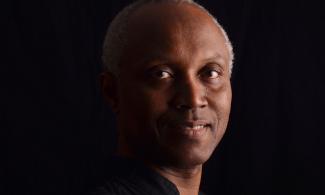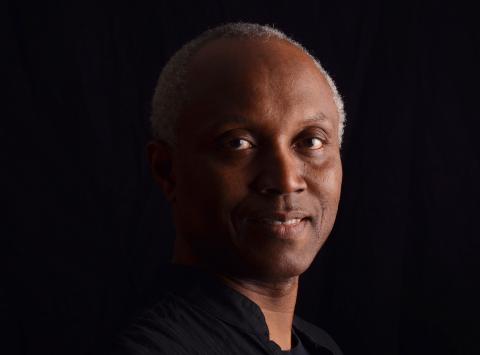
President Muhammadu Buhari’s administration may have fallen prey to the political syndrome of sameness. In other words, his dispensation may well be firmly set to run on the same track as his predecessors’.

Five months into the Buhari Presidency, there is a sense, even among his most fervent fans, that the expected momentum had dwindled—with little or nothing to show for it. Nigerians and the world have witnessed the demystification of a president who was billed as the very scourge of the corrupt, whoever they may be, however high their status.
Today, five months into the Buhari Presidency, there’s little evidence that Nigeria has become an uncomfortable zone for those who most deserve to be docked for cutting down their country through embezzlement, money laundering and other forms of corruption.
The one thing that Mr. Buhari was supposed to do well—that even some of his political adversaries conceded to him—was tackle corruption. Some even went as far as deeming him both allergic to corruption and to anybody who reeked of corruption.
Many Nigerians fantasized that President Buhari would bring a new kind of vigor to the fight against corruption. The kindest thing that can be said about the expected new spirit is that it remains to be seen. The anti-corruption president has not done a single thing to invigorate the cause of arresting the plague. He has not sent a bill to the National Assembly proposing the establishment of courts devoted to cases of corruption. He has not prescribed any radical change in the way the Economic and Financial Crimes Commission (EFCC) carries out its mandate. In five months, he has not found time to speak to Nigerians about a new bold initiative to tackle corruption or to foster a new civic awareness of the tragic cost of corrupt practices.
But it gets worse. Like it or not, Mr. Buhari is the face as well as dominant spirit of his political party, the All Progressives Congress (APC). Under his watch, in Kogi and Bayelsa States, the APC chose as its governorship candidates two men who have active cases of corruption in Nigerian court. Both men had been governors before, their records far from stellar. Even if the party were privy to solid information of the two men’s innocence, why not respect the judicial process? Or was it the case that the party suffered a drought of candidates unburdened by the taint of corruption? How could Mr. Buhari stand pat as his party made choices that mocked what he, as a man, presumed to stand against?
But to ask that question is to become aware, immediately, of the president’s direct implication in troubling choices. It’s not lost on Nigerians, including President Buhari’s most inveterate champions, that the president spent more than four months to saddle Nigerians with a curious, if not decidedly mediocre, ministerial line-up. In a country that’s never lacked for talent, how would President Buhari justify his selection of several ministerial nominees who are defendants in corruption cases?
In the first few months of the new dispensation, associates of the president loved to regale Nigerians with references to instances of monumental corruption by officials of the preceding administration. In one instance, Governor Adams Oshiomhole claimed that US officials had provided information about one minister who pocketed $6 billion.
Five months later, the Buhari administration has brought no single serious case against former President Goodluck Jonathan or any of his officials. About a month ago, there was great excitement among Nigerians over the possible prosecution of former Petroleum Minister Diezani Alison-Madueke. Remarkably, it took British officials, not the EFCC, to make any move against the former minister. I am not aware that Nigerian prosecutors have been able to cobble up a coherent case against Mrs. Alison-Madueke.
Moses Ochonu, a US-based professor of history, captured the prevailing tedium in a recent post on Facebook. “And the EFCC's catch and release circus goes north,” wrote the cerebral Nigerian academic. “This time the target is former Kebbi Governor, Usman Dakingari. Like Suswam, Akpabio, and numerous others before him, he will return home after he completes his part in the drama. All he has to do is play along with the elaborate performance. No prosecution let alone conviction. And if the modified script includes a prosecution, rest assured that there will be no conviction. If there is a conviction scene in the movie, it will be followed by a paltry fine.”
Many Nigerians had expected that the Buhari Presidency would, for one, dust up, and finally act on, the Halliburton scandal. This is an internationally well-known case in which Halliburton executives plied several Nigerian political figures with $182 million in bribes. Halliburton forked over all that cash in a bid to secure contracts worth as much as $6 billion in Nigeria’s liquefied natural gas sector.
Jeffrey Tesler, a UK lawyer who facilitated the bribes, was subsequently sentenced to 21 months in jail. In addition, he was ordered to forfeit close to $150 million to US authorities. Albert Stanley, head of KBR Inc., a Halliburton affiliate, received a two and a half year jail term, and a $10.8 million fine. Halliburton and its affiliate admitted wrongdoing, and paid fines of $579 million to the US government for violating the U.S. Foreign Corrupt Practices Act (FCPA).
If Nigeria were serious about law enforcement, then every single Nigerian official who took Halliburton’s cash would have been prosecuted, jailed and fined. Instead, no Nigerian has faced serious prosecution in the Halliburton scandal. Last July, as President Buhari made an official trip to the US, there were reports that he had asked for a review of the Halliburton file. Three months later, there’s no action, no further word.
It’s so disheartening, this seeming relapse into political timidity, moral compromise, the syndrome of sameness. Yet, I have the sneaking feeling that this serves us right, a welcome price for our national habit of believing that it’s up to God or some vaunted strong man to solve all our problems—while we quaff Orijin, gorge on nkwobi or orishirishi, and obsess over matters of religious or ethnic jingoism.
Please follow me on twitter @ okeyndibe
([email protected])